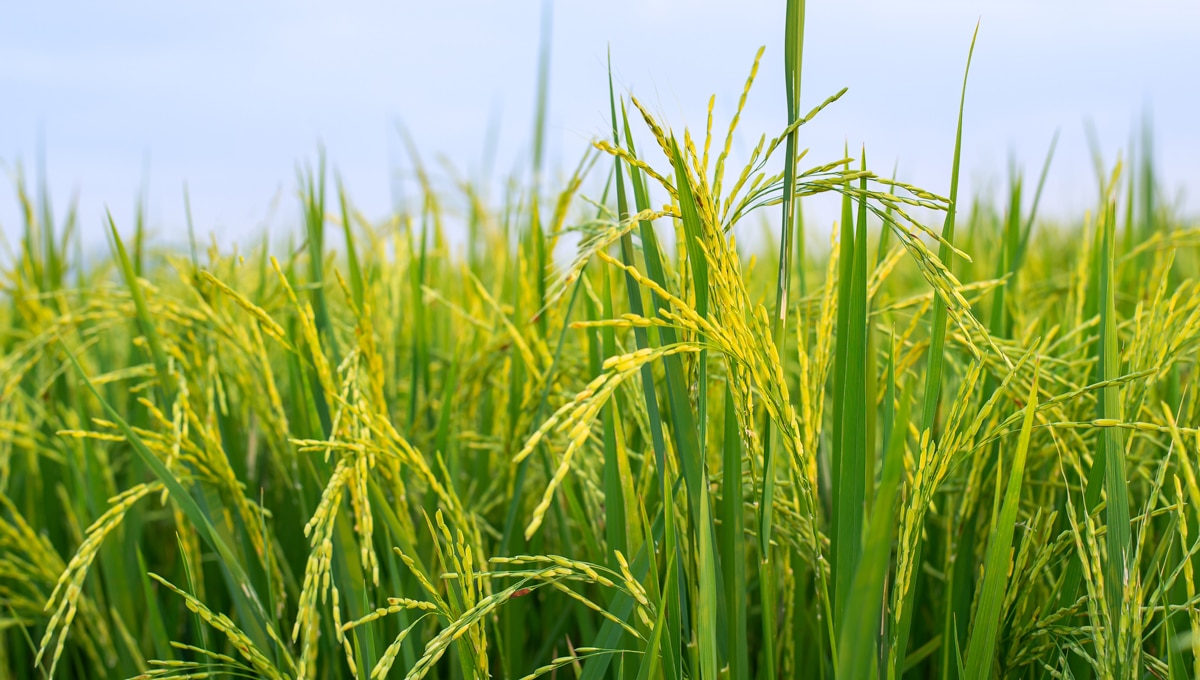Long ago, there is a village tucked away in the countryside. It is surrounded by lush fields stretching as far as eye can see. This village is famous for its plentiful rice harvest. Whenever there is a harvest, everyone is excited to help, including a young man named Wira.
Wira decided to pursue his studies in a city, leaving his village behind. However, upon hearing about the harvest from his parents, he rushed back home, to lend a hand. With his background in agriculture studies, Wira is excited to put his knowledge to a good use. Wira wanted to improve the harvest process by finding a better way to thresh paddy. Threshing is separating rice grains from paddy. Seeing farmers working so hard, beating bundles of paddies on a plastic sheet made him feel sorry for them. All that manual work must be tiring and time-consuming, he thought. With his knowledge, Wira knew he could make paddy threshing faster and more productive. Luckily, he has the machine with him to bring to the village. Wira called the farmers to the village hall that evening to share his idea.
The farmers, however, were not receptive to Wira’s proposal. Some elderlies resisted the notion of technology taking over their longstanding customs. Doubts were raised about the effectiveness of the new technology. A handful of them even ridiculed Wira, viewing him as an arrogant stranger, ignorant of the village’s ways. Wira found it is hard to believe that the villagers were so narrow-minded, preferring to stick to their old ways rather than embrace change. Tensions started to rise, as they began to argue. The village leader had to intervene, to stop a potential fight. He then proposed a contest to settle the dispute. Each participant would receive paddy bundles to thresh. Wira would use his machine, while other farmers would use their own methods. The winner, who threshed the most paddy by the next day, would decide the village’s threshing method. The only condition was no sabotage. All parties agreed, making it a fair competition.
“For we are co-workers in God’s service; you are God’s field, God’s building.” 1 Corinthians 3:9 31
The next morning, villagers assembled in an open field to witness the competition. A big team of farm laborers started harvesting the paddy for the contest, skillfully cutting mature stalks with sickles. They bundled the harvested paddy up and arranged them in front of the participants, Wira and a group of traditional farmers. As soon as the village leader finished the countdown, the contest commenced.
Wira used a machine to thresh the paddy, placing the bundles inside and letting it grind the paddy. As a result, rice grains came out from within. On the other side of the field, traditional farmers followed their usual method of threshing by beating the bundles to separate rice from paddy. As they beat the bundles, they sang songs to energize themselves. Both contestants tirelessly threshed for hours, pausing only for short breaks. Some farmworkers assisted each participant by packing the rice into sacks. The entire village watched the contest with great enthusiasm. It had been a long time since the village had such an exhilarating event. By noon, the contest was over. Sacks of rice were stacked up on each side.
The village leader and his assistants proceeded to the field, to tally every number of harvested sacks by each contestant. The result was a tie. Wira and the traditional farmers were able to produce the same quantity of rice, after all their efforts. The village leader was overjoyed with the outcome; he even said that this year’s harvest could be the most successful; thanks to the contestants.
Wira and the traditional farmers eventually understood the futility of their competition. Villagers were not concerned about how the paddy was threshed; as long as they can harvest. The two adversaries reconciled by shaking hands. Wira felt a sense of brotherhood among the traditional farmers, and he’d like to try manual threshing. Meanwhile, the head of the traditional farmers was impressed by the effectiveness of Wira’s machine, and humbly asked to be taught how it is operated. The entire village rejoiced upon the reconciliation, and that night, a feast was organized to celebrate these industrious threshers.
This story of different people butting heads isn’t uncommon. When East meets West, old-schools meets newschools, and modern meets traditional ways of thinking, clashes are often inevitable. Christians, of course, are not excluded, be it in our churches or homes. These clashes often do more harm than good. Putting a new perspective may open up our blindfolded competitive spirit. A collaborative atmosphere is what we need, as we are coworkers in God’s service, doing God’s work, in God’s world, here on this beautiful earth.






